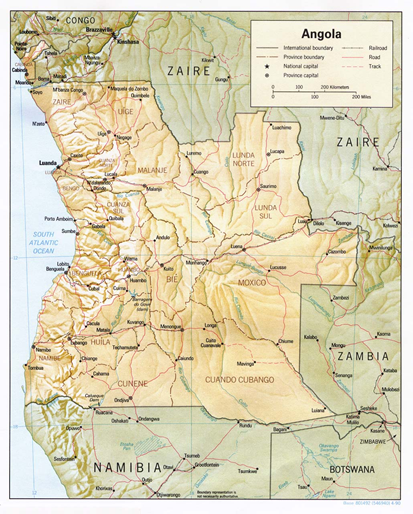Diamonds Featured
LuxuryRules deals in rough, cuttish, raw, flawless and polished diamonds. Moreover Luxury Rules can obtain diamonds from its END-Partner from the second largest diamonds mine in the world, with a first step production of 1,000,000 carats per day, located in the province of Saurimo, in Lunda SUL (Angola) with a estimated value of 3,3 TRILLION USD .
Why Angola?
• Angola is the 4th largest diamond producer in the world
• The country is exceptionally prospective for new primary deposits
• High potential geology
• No exploration 1975 to 2002 due to civil war
• New era of political stability and rapid economic development
since the end of war (2002)
• Unusually large number of targets identified
• Many are world class and large in size potential geology
• High value diamonds reported in local alluvial deposits
Artisinal mining activity is widespread 
The mine, located in North Catoca..;
• It is the second largest diamonds mine in the world
• Has the largest chemini kimberlitica of the world
• Can produce 1,000,000 carats per day on the first step
• The biggest kimberlite chimney covers 7 km of diameter
• 219 Kimberlite targets have been identified
• One of the pipes are described as a monster
• Already it’s a kimberlite far larger than Orapa
(De Beers’s mammoth Botswana-based mine)
The concession covers an area of 1 375 km2
The license to mine alluvial diamond had been granted in April 2008, through ENDIAMA (partner).
More than 250 km of river traverse the property includes Cuilo-, Mussunuige-, Cassolo-, Luange-, Goja-, Cacumbi- Pêso-, Musseque-, Luxinga- and Luvo rivers
The Baixo Cuilo project area covers the southern portion of the catchment of the Chicapa and Luachimo rivers, which have been among the most prolific sources of alluvial diamonds in Angola.
-
 Click to open image!
Click to open image!
-
 Click to open image!
Click to open image!
-
 Click to open image!
Click to open image!
-
 Click to open image!
Click to open image!
-
 Click to open image!
Click to open image!
-
 Click to open image!
Click to open image!
-
 Click to open image!
Click to open image!
http://www.luxuryrules.com/commodities/diamonds/diamonds.html#sigProGalleria2e4346e19b
Parameters:
- SG – Typical of the area
- Thickness – Conservative as gravels reach thicknesses
of up to 45-50 m and is often multilayered - Length – Only 40% of total river length considered
- Width – Conservative 57 % of measured width of 74m


















